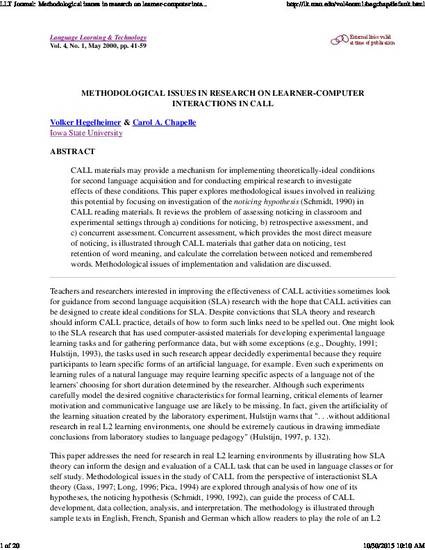
CALL materials may provide a mechanism for implementing theoretically-ideal conditions for second language acquisition and for conducting empirical research to investigate effects of these conditions. This paper explores methodological issues involved in realizing this potential by focusing on investigation of the noticing hypothesis (Schmidt, 1990) in CALL reading materials. It reviews the problem of assessing noticing in classroom and experimental settings through a) conditions for noticing, b) retrospective assessment, and c) concurrent assessment. Concurrent assessment, which provides the most direct measure of noticing, is illustrated through CALL materials that gather data on noticing, test retention of word meaning, and calculate the correlation between noticed and remembered words. Methodological issues of implementation and validation are discussed.
Available at: http://works.bepress.com/carol_chapelle/11/

This article is from Language Learning & Technology 4 (2000): 41. Posted with permission.